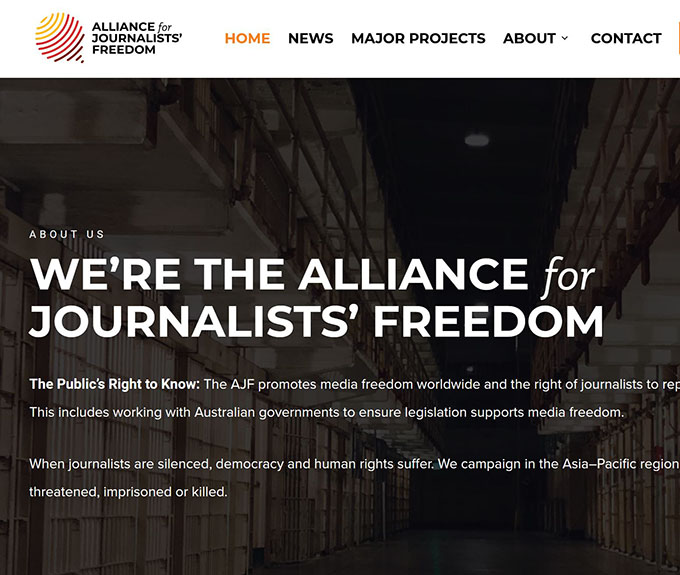
BRISBANE: Alliance fior Journalists' Freedom/Asia Pacific Report/Pacific Media Centre: The Alliance for Journalists’ Freedom has called for a voluntary certification programme for Australian journalists as an essential step towards building trust in journalism, and distinguishing journalists from what can be false and misleading commentary on social and digital channels.
“We believe that a voluntary certification programme is needed now,” says AJF spokesperson Professor Peter Greste in a statement.
“As journalism and the platforms through which it is practised undergo rapid change, it will help to ensure the high standards of professionalism and independence necessary for it to continue to make its important contribution to democracy and transparency.
“Central to this is the need to distinguish journalists from others who post news and commentary on social media.
“A voluntary certification programme that includes a minimum level of training will, for instance, ensure the certified journalist understands the law and their code of conduct, and is prepared to be held accountable to it.
“This is about building trust in journalism. It is no different from the trustworthiness accountants, doctors, engineers, lawyers and many other professions gain by being certified.
“The voluntary certification program must be completely independent of government.
“In that respect it is similar to the Australian Institute of Company Directors program, which certifies directors who have completed their voluntary graduate course.”
The AJF sees the certification as an essential component of the AJF’s proposed Media Freedom Act (MFA).
“It does not mean that non-certified journalists would be unprotected by the legislation,” said the AJF statekent.
“Certification is simply an accredited acknowledgement of a certain level of understanding of journalists’ principles.”
How certification might work
As the aim is to increase the quality of journalism and public confidence in the work that journalists produce, certification must include the following:
• A training component, to confirm that anyone who is certified has done a requisite level of training in the law, professional practice and ethics;
• Evidence of a process for producing work that meets the standards required of certified journalists;
• Evidence of published journalism;
• A commitment to abide by a recognised journalists’ code of conduct;
• Accountability to that code of conduct.
Once an applicant has completed the requisite training and produced evidence of published work that meets the minimum standards, they would qualify for certification. Such a denomination would allow a journalist to place a “kite mark” next to their name in any published work or on social media. That would signal to readers and audiences that they have been recognised by their peers as someone who produces a high standard of work.
Any member of the public who thinks a certified journalist has breached the code and general principles would have the right to complain to the certifying body. If the complaint is upheld and found to be serious enough, the body would have the power to withdraw certification.
Certification would also work in concert with the Media Freedom Act. The Act could determine that anyone who is certified, is assumed to be a journalist and benefit from its protections. It would then be up to the investigating authorities to show why an individual had breached their obligations as a journalist and should be treated as an ordinary person.
This does not mean a person cannot work as a journalist without certification. Nor does it mean that an uncertified journalist would not be protected by an MFA. It simply means that they would need to show the authorities why, for the purposes of the Act, they should be treated as one.



